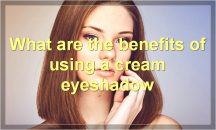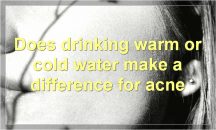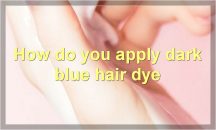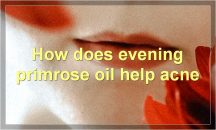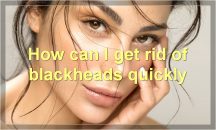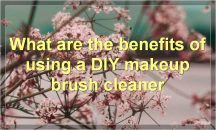Acne spot treatments are a great way to get rid of acne fast. There are many different types of acne spot treatments, so finding the best one for you can be tricky. However, we’ve done the research for you and compiled a list of the best acne spot treatments on the market.
What are the best acne spot treatments
There are a number of different acne spot treatments available on the market today. But with so many options, how do you know which one is right for you?
To help you make an informed decision, we’ve put together a list of the best acne spot treatments. We’ve also included a buyer’s guide to help you choose the right product for your needs.
The best acne spot treatments:
1. Benzoyl peroxide: Benzoyl peroxide is a popular choice for treating acne. It works by killing the bacteria that cause acne and reducing inflammation.
2. Salicylic acid: Salicylic acid is another popular acne treatment. It helps to unclog pores and prevent new breakouts from forming.
3. Tea tree oil: Tea tree oil is an essential oil that has anti-inflammatory and antimicrobial properties. It’s often used as a natural treatment for acne.
4. Honey: Honey is a natural antibiotic and has anti-inflammatory properties. It can be used as a mask or spot treatment for acne.
5. Apple cider vinegar: Apple cider vinegar has antibacterial and antiseptic properties. It can be used as a toner or spot treatment for acne.
6. Aloe vera: Aloe vera is a plant that has soothing and anti-inflammatory properties. It can be used as a spot treatment for acne or applied to the whole face as a mask.
7. Coconut oil: Coconut oil has antibacterial and anti-inflammatory properties. It can be used as a moisturizer or makeup remover, or applied directly to the skin as a spot treatment for acne.
8. Lemon juice: Lemon juice has astringent and antibacterial properties. It can be used as a facial cleanser or toner, or applied directly to the skin as a spot treatment for acne.
9. Baking soda: Baking soda is a natural exfoliant that can help to unclog pores and absorb excess oil. It can be used as a facial scrub or mask, or applied directly to the skin as a spot treatment for acne.
What are the most effective acne spot treatments
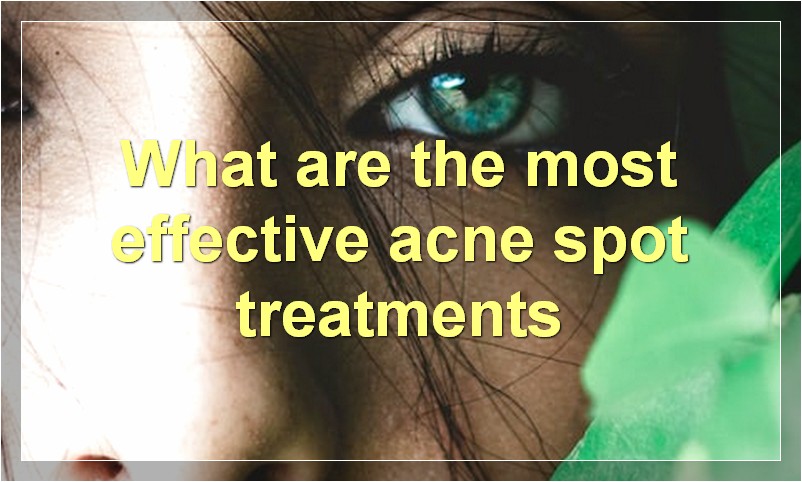
Acne is a common skin condition that can be unsightly and embarrassing. There are many over-the-counter treatments available, but not all of them are effective. Here are some of the most effective acne spot treatments:
1. Benzoyl peroxide
Benzoyl peroxide is a popular acne spot treatment because it is effective at killing bacteria and reducing inflammation. It is available in both Cream and gel formulations
2. Salicylic acid
Salicylic acid is another popular acne spot treatment. It works by exfoliating the skin and unclogging pores. It is available in both gel and cream formulations.
3. Sulfur
Sulfur is an effective acne spot treatment because it helps to reduce redness and swelling. It is available in both cream and ointment formulations.
4. Tea tree oil
Tea tree oil is an essential oil that has antibacterial and anti-inflammatory properties. It is often used as an acne spot treatment because it can help to reduce the size of pimples and speed up healing time.
5. Green tea extract
Green tea extract is a natural ingredient that has antioxidant and anti-inflammatory properties. It can help to reduce the size of pimples and speed up healing time.
What are the best over-the-counter acne spot treatments
Acne is a very common skin condition that can cause a lot of embarrassment and anxiety. There are many different treatments available, both prescription and over-the-counter. But which one is the best?
There are many different over-the-counter acne spot treatments available. But which one is the best?
To answer this question, we need to first understand what acne is. Acne is a condition of the skin that occurs when the pores become clogged with sebum, dead skin cells, and bacteria. This can lead to inflammation and the formation of pimples, blackheads, and whiteheads.
There are many different factors that can contribute to the development of acne, including genetics, hormones, diet, and stress. But one of the most important factors is the type of skin you have. People with oily skin are more prone to developing acne because their pores are more likely to become clogged.
The good news is that there are many effective treatments available for acne. The key is to find the right one for you. Here are some of the best over-the-counter acne spot treatments:
1. Benzoyl peroxide: Benzoyl peroxide is a popular spot treatment for acne because it is effective at killing the bacteria that causes acne. It is available in both cream and gel form. Apply benzoyl peroxide to the affected area twice a day after cleansing your face.
2. Salicylic acid: Salicylic acid is another popular spot treatment for acne. It works by exfoliating the skin and unclogging pores. It is available in both gel and liquid form. Apply salicylic acid to the affected area once or twice a day after cleansing your face.
3. Sulfur: Sulfur is a natural element that has been used to treat acne for centuries. It works by absorbing excess oil and reducing inflammation. It is available in both cream and ointment form. Apply sulfur to the affected area two or three times a day after cleansing your face.
4. Tea tree oil: Tea tree oil is an essential oil that has antimicrobial and anti-inflammatory properties. It is available in both gel and cream form. Apply tea tree oil to the affected area two or three times a day after cleansing your face.
5. Zinc oxide: Zinc oxide is a mineral that has antibacterial and anti-inflammatory properties. It is available in cream form. Apply zinc oxide to the affected area two or three times a day after cleansing your face
What are the best natural acne spot treatments
Acne is a common skin condition that affects people of all ages. The best acne spot treatments are those that are natural and gentle on the skin.
There are many different causes of acne, but the most common is excess oil production. When the sebaceous glands produce too much sebum, it can clog the pores and lead to the formation of pimples and blackheads.
Acne is often aggravated by stress, hormone imbalances, certain medications, and cosmetics. Fortunately, there are a number of natural acne spot treatments that can help to clear up the skin.
One of the best natural acne spot treatments is tea tree oil. This essential oil has antimicrobial properties that can kill the bacteria that cause acne. It also helps to unclog the pores and dry out the excess sebum.
Another effective natural acne spot treatment is apple cider vinegar. This acidic substance helps to balance the pH of the skin, which can reduce the inflammation associated with acne.
To use apple cider vinegar as an acne spot treatment, simply dilute it with water and apply it to the affected area with a cotton ball. Leave it on for about 15 minutes before rinsing it off.
If you suffer from acne, you may also want to try some home remedies. One popular home remedy is to mix equal parts baking soda and water and apply it to the affected area. This mixture will help to exfoliate the skin and remove excess oil.
There are also a number of over-the-counter acne spot treatments that can be effective. These products usually contain Benzoyl peroxide or salicylic acid, which work to kill the bacteria that cause acne and dry out the excess sebum.
If you have tried all of these natural acne spot treatments and your skin is still not clearing up, you may need to see a dermatologist for more aggressive treatment options.
What are the best home remedies for acne spot treatment
Acne is a common skin condition that affects people of all ages. The best home remedies for acne spot treatment include using a gentle cleanser, applying an acne-fighting agent, and avoiding picking at the blemishes.
Acne is a skin condition that occurs when the hair follicles become plugged with oil and dead skin cells. The resulting pimples can be whiteheads, blackheads, or cysts. Acne can occur on the face, neck, chest, back, or shoulders.
There are many over-the-counter treatments for acne, but some people prefer to use home remedies. The best home remedies for acne spot treatment include using a gentle cleanser, applying an acne-fighting agent, and avoiding picking at the blemishes.
Gentle Cleanser
One of the best home remedies for acne spot treatment is to use a gentle cleanser. Choose a cleanser that is non-comedogenic and fragrance-free. Avoid using harsh soaps or scrubbing too hard, as this can irritate the skin and make the acne worse.
Acne-Fighting Agent
There are many topical agents that can help to treat acne. Look for products that contain benzoyl peroxide, salicylic acid, or retinoids. These ingredients are effective at treating acne by killing bacteria, unclogging pores, and reducing inflammation. Apply the agent to the affected area once or twice daily.
Avoid Picking
Picking at pimples can cause them to become inflamed and lead to scarring. If you must touch your face, wash your hands first to avoid transferring bacteria to the skin. When you see a pimple, resist the urge to pop it. Instead, gently press on either side of the blemish with a clean cotton swab.
What is the best way to treat acne spots
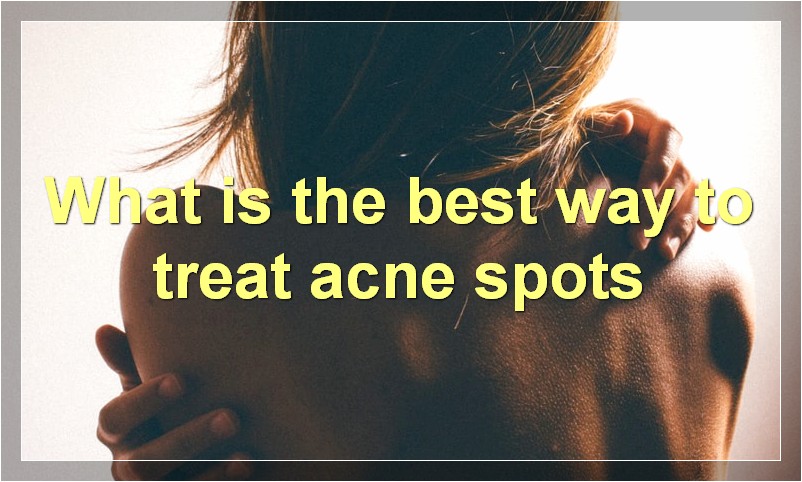
Acne is a common skin condition that affects people of all ages. Acne spots are one of the main symptoms of acne and can be very annoying. There are many different ways to treat acne spots and it can be difficult to know which one is best for you.
One way to treat acne spots is to use a spot treatment. Spot treatments are usually gels or creams that you apply directly to the spots. They often contain ingredients like benzoyl peroxide or salicylic acid, which can help to reduce inflammation and kill bacteria.
Another way to treat acne spots is to use a face mask. Face masks can help to unclog pores and remove excess oil from the skin. They can also help to soothe the skin and reduce redness.
If you have severe acne, you may need to see a dermatologist. Dermatologists can prescribe medication that can help to clear up acne. They can also provide advice on how to care for your skin and how to prevent future breakouts.
How can I get rid of acne spots fast
Acne spots are one of the most frustrating skin concerns. They can pop up at the most inopportune times and seem impossible to get rid of. If you’re looking for how to get rid of acne spots fast, you’re in luck. There are a few things you can do to help speed up the healing process.
First, it’s important to resist the urge to pick or pop your pimples. This can cause further irritation and even lead to scarring. Instead, gently cleanse the area with a mild cleanser and let your skin heal itself.
If you have an acne spot that’s particularly stubborn, you may want to try a spot treatment. Look for one that contains benzoyl peroxide or salicylic acid, which are both effective ingredients for treating acne. Apply the treatment directly to the spot and let it work its magic.
Finally, make sure you’re drinking plenty of water and eating a healthy diet. These two things can help improve your skin’s overall appearance and make it more resistant to breakouts in the future.
How do I prevent acne spots
Acne is one of the most common skin problems in the world, affecting people of all ages. While there is no surefire way to prevent acne spots, there are a few things you can do to minimize your risk.
First, try to keep your skin clean and free of excess oil. Wash your face twice a day with a gentle cleanser, and be sure to remove all makeup before going to bed. You may also want to use an over-the-counter acne treatment cream or gel.
Second, avoid picking or squeezing your pimples. This can lead to further irritation and even scarring. If you must pop a pimple, do so carefully using a clean needle or comedone extractor.
Finally, eat a healthy diet and get plenty of rest. Both stress and certain foods (such as dairy and sugar) can trigger breakouts. By taking care of yourself both inside and out, you can help keep your skin looking its best.
What causes acne spots
Acne is a very common skin condition that can affect people of all ages. The exact cause of acne is not known, but it is thought to be due to a combination of factors, including hormones, genes, and the overproduction of oil by the sebaceous glands. Acne spots are usually found on the face, neck, chest, back, and shoulders.
There are many different types of acne spots, but the most common are blackheads, whiteheads, and papules. Blackheads are small, dark bumps that develop when a clogged hair follicle becomes filled with oil and dead skin cells. Whiteheads are similar to blackheads, but they are smaller and have a white center. Papules are small, red bumps that can be tender to the touch.
Acne spots can be treated with over-the-counter medications, prescription medications, or a combination of both. The most important part of treatment is to keep the skin clean and free of oils. This can be done by washing with a mild soap or cleanser twice a day and using an oil-free moisturizer. If over-the-counter treatments do not work, your doctor may prescribe a topical medication or oral antibiotic.
How can I treat acne scars
Acne scars are a common skin concern that can cause great distress and impact one’s quality of life. There are many available treatments that can improve the appearance of acne scars, but it is important to consult with a board-certified dermatologist to select the best option for you based on the type and severity of your scars.
There are two main types of acne scars: atrophic and hypertrophic. Atrophic scars are indentations in the skin caused by a loss of collagen, while hypertrophic scars are raised, thickened scars that can occur when the body overproduces collagen in response to an injury. Both types of scars can be further classified as either rolling, boxcar, or icepick. Rolling scars have gentle curves and give the skin a wave-like appearance, while boxcar scars are characterized by sharp angles and defined edges. Icepick scars are deep, narrow scars that resemble tiny holes in the skin.
Acne scar treatment can be divided into two main categories: medical and surgical. Medical treatments include topical therapies, injectables, and laser treatments. Topical therapies include creams and gels that contain ingredients like retinoids, vitamin C, or hyaluronic acid, which can help to stimulate collagen production and improve the appearance of scars. Injectables such as fillers or platelet-rich plasma (PRP) can also be used to fill in depressions or smooth out raised scars. Laser treatments use targeted beams of light to improve the texture of the skin and reduce the appearance of scars. Surgical treatments for acne scarring include punch excision, subcision, dermabrasion, and laser resurfacing.
No single treatment is right for every patient, so it is important to work with a board-certified dermatologist to select the best option for you based on the type and severity of your acne scars. With the right treatment plan, you can achieve significant improvement in the appearance of your acne scars and improve your quality of life.
